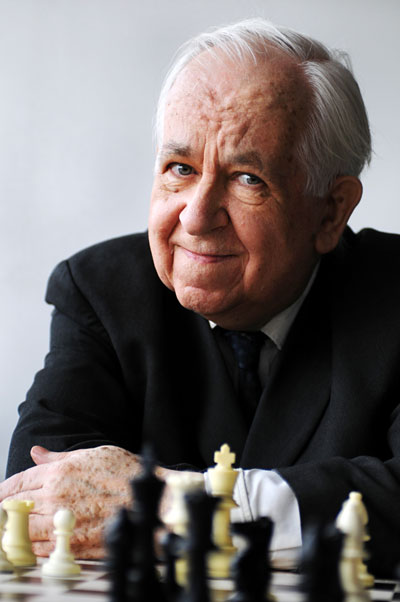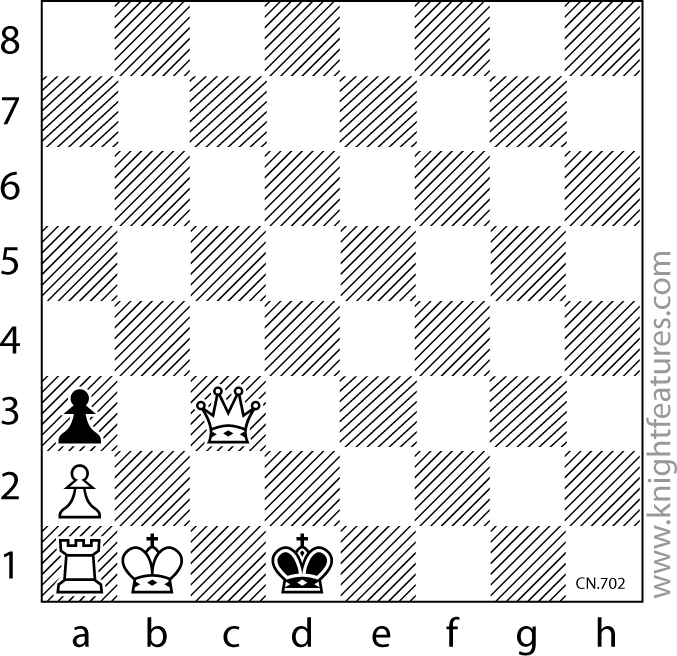Leonard Barden is one of the World’s leading chess writers. The former British champion has contributed daily or weekly columns to the Guardian, Financial Times, and London Evening Standard for over 60 years, as well as contributing many articles to specialist magazines. He has frequently appeared on television and radio, has written 18 instructional books on the game, and currently has articles syndicated worldwide.
Leonard Barden’s writing speciality is chess puzzles, presented in an interesting way with human interest stories to match the positions.
Barden is a former England international, and the only chessplayer ever to have partnered the legendary Bobby Fischer in a consultation game, which took place on BBC radio. He is a renowned talent-spotter and was the first journalist to forecast in print that Garry Kasparov, then aged only 11, would become world champion.
Barden has also helped several of England's own sub-teen talents, including Gawain Jones and David Howell who went on to become grandmasters and British champions.
White mates in three moves, against any defence (by Otto Wurzburg).
Sometimes the simplest-looking chess puzzles can be the hardest to crack, and I recall struggling for nearly an hour over this miniature setting when I first came across it.
How do you rate?
Harry Pillsbury v Moissei Eljaschoff, Hanover 1902. Due to the high quality of the opposition, many experts rate Pillsbury's world record 22 games simultaneously blindfold at Hanover as the greatest such exhibition. But Eliot Hearst and John Knott in their classic book "Blindfold Chess" rate Alexander Alekhine's 24-game display at New York 1924 as against still tougher opponents. What is sure is that Alekhine had a much better score, Pillsbury achieving only 40 per cent. In today's puzzle as White (to move) he went 1 Qg2? thus missing a spectacular winning tactic.
Can you do better for White?
















